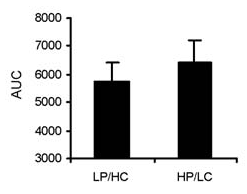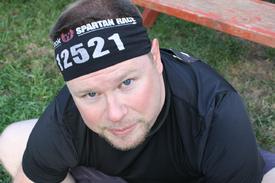Why drinking a protein shake right BEFORE BED is good!
Replies
-
Dang!! So drinking a Big Glass of 1% Chocolate Milk and having a cup of Double Crave Chocolate Cereal dry with a 1/2 cup of Almonds (580 calories) while lying in bed every night for the last 3 years will cause me to not lose weight??? Well crap, wish I would have known that 310 lbs. ago!! and I am a Type 2 Diabetic to boot and have A1c of 5.3 now..... Grr!!! :drinker:
That cereal is good by I can only eat it dry in milk it is not good0 -
Dang!! So drinking a Big Glass of 1% Chocolate Milk and having a cup of Double Crave Chocolate Cereal dry with a 1/2 cup of Almonds (580 calories) while lying in bed every night for the last 3 years will cause me to not lose weight??? Well crap, wish I would have known that 310 lbs. ago!! and I am a Type 2 Diabetic to boot and have A1c of 5.3 now..... Grr!!! :drinker:
NICE!0 -
I read the original post and went :noway: Then thought of the misinformation that would be taken as gospel by some and went :grumble: But, overall, this entire thread had me :laugh: :laugh: :laugh: especially the post from the guy wanting to give his wife protein before bed!:devil:0
-
Dang!! So drinking a Big Glass of 1% Chocolate Milk and having a cup of Double Crave Chocolate Cereal dry with a 1/2 cup of Almonds (580 calories) while lying in bed every night for the last 3 years will cause me to not lose weight??? Well crap, wish I would have known that 310 lbs. ago!! and I am a Type 2 Diabetic to boot and have A1c of 5.3 now..... Grr!!! :drinker:
That cereal is good by I can only eat it dry in milk it is not good
Yeah I prefer it dry too... It is great mixed with Almonds....0 -
You mean I have been doing this wrong all these years? I go to bed on empty stomach!0
-
1. Eating right before bed is perfectly fine unless it puts you over your calorie goal for the day, so this post started with a myth, and then snowballed from there.
2. Protein, particularly a protein shake, spikes insulin just as much, and sometimes even more, than carbs do, a simple fact which completely invalidates this entire post.
"THE LAWS OF NUTRIENT TIMING
The first law of nutrient timing is: hitting your daily macronutrient targets is FAR more important than nutrient timing.
The second law of nutrient timing is: hitting your daily macronutrient targets is FAR more important than nutrient timing."
-Alan Aragon
I disagree with all those who say it doesn't matter when you eat. Calories in-calories out is too simplistic. There are other factors that effect weight loss. To convert fat into glucose so it can be used as energy, the body uses Human Growth Hormone (HGH). The presence of insulin in the bloodstream inhibits the release of HGH. To stimulate the release of HGH from the pituitary gland, do not eat a carbohydrate meal near bedtime. If you are hungry, eat a small protein meal before bed, plain yogurt, chicken breast, egg whites etc. Or foods with a very low glycemic index such as an avocado. http://www.carbs-information.com/glycemic-index.htm#gi
HGH release is stimulated by exercise and fasting, or when we are low on glucose in the blood and the pancreas is not producing insulin. The pituitary releases higher amounts of HGH while we sleep than while we are awake, if insulin is not being secreted by the pancreas. The highest HGH release comes during deep sleep, so lack of sleep affects the ability to burn fat stores. Sleep apnea is an enemy to weight loss.
As we age (after age 40) the pituitary gland slowly starts to cut down how much HGH it produces. Hence we have an increasingly difficult time burning excess fat stores.
Apart from increasing height in children, growth hormone carries out many other metabolic functions such as increasing calcium retention, strengthens and increases the mineralization of the bone, increase in muscle mass through the creation of new cells, promotes lipolysis, resulting in reduction of the adipose tissue (body fat), increases promote synthesis and stimulates the growth of all internal organs, reduces the liver uptake of glucose, an effect that opposes that of insulin, helps in the maintenance of pancreatic islets, promotes liver gluconeogenesis (glucose generation), plays a role in fuel homeostatis and it also stimulates the immune system. (http://www.jintropin.cn/hgh.html)
Bottom line, stop eating carbs late at night if you want to burn body fat.
Read more: How Does Human Growth Hormone Work? | eHow.com http://www.ehow.com/how-does_4759518_human-gr owth-hormone-work.html#ixzz1prKqNa6A0 -
Bottom line, stop eating carbs late at night if you want to burn body fat.
Read more: How Does Human Growth Hormone Work? | eHow.com http://www.ehow.com/how-does_4759518_human-gr owth-hormone-work.html#ixzz1prKqNa6A
All of these rules make me just not want to eat period and this is why so many people fail at getting their weight down because of restrictions.... I have not seen any study that says carbs at night makes you fat. It may not be as simple as caloric balance but if one rules out any medical issues then to me caloric balance is essentially the key to get the person moving. Or the person is simply eating too much of the wrong foods AKA too much junk.0 -
I also drink a bunch of beers before bed. It really helps with weight loss.
 0
0 -
Eating right before bed has always been a no-no when it comes to losing weight. Downing a few hundred high-glycemic calories right before hitting the sack is a recipe for a sure insulin response nightmare. All those carbohydrates ingested are quickly converted to sugar and your body's response is to flood your bloodstream with insulin in an attempt to lower your blood sugar levels. Where do the sugars go? Yes, you guessed it, right to your thighs in the form of fat.
But, not all foods right before bed are necessarily bad for you. In fact, eating protein right before bed has been a practice of elite level bodybuilders for decades. If you don't put protein into your body before you go to bed, your body will run out of protein about 2 am. Once your body digests all of its available protein, your body thinks it is starving itself. To protect you, your body shuts down and starts storing fat cells. The sugar in your blood still needs protein to keep you going, so it starts consuming the only protein source available, your own muscle mass. Basically, you are storing fat and eating muscle.
By drinking a high protein smoothie just before you go to bed, the added protein will support muscle growth for up to 4 to 5 hours. Now the process is reversed for most of your sleep time. Rather than storing fat and eating muscle, the protein allows your body to burn the fat at its normal rate while building muscle.
By eating protein right before bed, you will get a better night sleep and wake up more alert and less hungry in the morning.
(taken from http://www.ironmagazineforums.com/diet-nutrition/123935-why-drink-protein-shake-before-bed.html)
(I did take out the info on the egg white shake... check out the link for that recipe)
BTW - my trainer suggests (and I practice) simply having a scoop of your favorite protein powder mixed with water, instead of adding in tons of calories from milk and other foods/flavors.
there's so much wrong there, I simply don't know where to start.0 -
I'd recommend only drinking 58% of the whey protein shake.0
-
Where do the sugars go? Yes, you guessed it, right to your thighs in the form of fat.
I wonder how many people actually guessed the thigh area.0 -
1. Eating right before bed is perfectly fine unless it puts you over your calorie goal for the day, so this post started with a myth, and then snowballed from there.
2. Protein, particularly a protein shake, spikes insulin just as much, and sometimes even more, than carbs do, a simple fact which completely invalidates this entire post.
"THE LAWS OF NUTRIENT TIMING
The first law of nutrient timing is: hitting your daily macronutrient targets is FAR more important than nutrient timing.
The second law of nutrient timing is: hitting your daily macronutrient targets is FAR more important than nutrient timing."
-Alan Aragon
I disagree with all those who say it doesn't matter when you eat. Calories in-calories out is too simplistic. There are other factors that effect weight loss. To convert fat into glucose so it can be used as energy, the body uses Human Growth Hormone (HGH). The presence of insulin in the bloodstream inhibits the release of HGH. To stimulate the release of HGH from the pituitary gland, do not eat a carbohydrate meal near bedtime. If you are hungry, eat a small protein meal before bed, plain yogurt, chicken breast, egg whites etc. Or foods with a very low glycemic index such as an avocado. http://www.carbs-information.com/glycemic-index.htm#gi
HGH release is stimulated by exercise and fasting, or when we are low on glucose in the blood and the pancreas is not producing insulin. The pituitary releases higher amounts of HGH while we sleep than while we are awake, if insulin is not being secreted by the pancreas. The highest HGH release comes during deep sleep, so lack of sleep affects the ability to burn fat stores. Sleep apnea is an enemy to weight loss.
As we age (after age 40) the pituitary gland slowly starts to cut down how much HGH it produces. Hence we have an increasingly difficult time burning excess fat stores.
Apart from increasing height in children, growth hormone carries out many other metabolic functions such as increasing calcium retention, strengthens and increases the mineralization of the bone, increase in muscle mass through the creation of new cells, promotes lipolysis, resulting in reduction of the adipose tissue (body fat), increases promote synthesis and stimulates the growth of all internal organs, reduces the liver uptake of glucose, an effect that opposes that of insulin, helps in the maintenance of pancreatic islets, promotes liver gluconeogenesis (glucose generation), plays a role in fuel homeostatis and it also stimulates the immune system. (http://www.jintropin.cn/hgh.html)
Bottom line, stop eating carbs late at night if you want to burn body fat.
Read more: How Does Human Growth Hormone Work? | eHow.com http://www.ehow.com/how-does_4759518_human-gr owth-hormone-work.html#ixzz1prKqNa6A
Wait, don't eat carbs before bed because carbs spike insulin and insulin prevents HGH, so instead eat protein because protein spikes insulin but insulin doesn't prevent HGH?
Insulin doesn't prevent HGH, that's a very oversimplified statement. Hyperglycemia prevents release of HGH, and hyperglycemia is a very specific medical condition. Insulin, HGH, and IGF-1 all work together to maintain muscle and tissue health, and control the metabolism, one does not automatically prevent the other from being released.0 -
I'd recommend only drinking 58% of the whey protein shake.
Win.0 -
The validity of this thread has been completely handled.
I'm in for the entertainment value.0 -
Bump0
-
2. Protein, particularly a protein shake, spikes insulin just as much, and sometimes even more, than carbs do, a simple fact which completely invalidates this entire post.
Protein may be insulinogenic, but it definitely does not spike insulin to the degree that carbs do.0 -
2. Protein, particularly a protein shake, spikes insulin just as much, and sometimes even more, than carbs do, a simple fact which completely invalidates this entire post.
Protein may be insulinogenic, but it definitely does not spike insulin to the degree that carbs do.
ORLY?
Comparison of insulin response between low protein, high carb meal and high protein, low carb meal
Insulin response to high protein and high carb meals
http://weightology.net/weightologyweekly/?page_id=319
http://www.ncbi.nlm.nih.gov/pubmed/200608630 -
I have a question for people who understand this homone and glycogen stuff. Why is it that if I eat something really really sugary before bed I inevitably have really full-on nightmares. I generally have very little sugar in my diet, but I do always eat at night?? Ideas? (and its nothing to do with my husband and his protein)0
-
2. Protein, particularly a protein shake, spikes insulin just as much, and sometimes even more, than carbs do, a simple fact which completely invalidates this entire post.
Protein may be insulinogenic, but it definitely does not spike insulin to the degree that carbs do.
ORLY?
Comparison of insulin response between low protein, high carb meal and high protein, low carb meal
Insulin response to high protein and high carb meals
http://weightology.net/weightologyweekly/?page_id=319
http://www.ncbi.nlm.nih.gov/pubmed/20060863
The fact that carbohydrates spike insulin more than protein isn't controversial, it's basic science. The insulin response to a meal is primarily determined by the amount of carbs and rate of absorption. You should have read the weightology link a bit closer:You can see that, despite the fact that the blood sugar response was much higher in the meal with more carbohydrate, the insulin response wasn’t higher. In fact, the insulin response was somewhat higher after the high protein meal, although this wasn’t statistically significant.
Note: Protein has been shown to significantly enhance the insulin response to a meal when COMBINED with carbs, but unless you're talking about type 2 diabetics with blunted insulin response to carbs, then amount of carbs is still the main driver.
Here are some links that show what we already know:
http://jn.nutrition.org/content/133/2/405.short
http://jn.nutrition.org/content/133/2/411.short0 -
The fact that carbohydrates spike insulin more than protein isn't controversial, it's basic science. The insulin response to a meal is primarily determined by the amount of carbs and rate of absorption. You should have read the weightology link a bit closer:You can see that, despite the fact that the blood sugar response was much higher in the meal with more carbohydrate, the insulin response wasn’t higher. In fact, the insulin response was somewhat higher after the high protein meal, although this wasn’t statistically significant.
How does what you bolded support your assertion carbs spike protein more than protein?
Table 4, compare the group mean insulin AUC of the carb rich foods to the group mean of the protein rich foods
http://www.ajcn.org/content/66/5/1264.full.pdf+html0 -
I have a question for people who understand this homone and glycogen stuff. Why is it that if I eat something really really sugary before bed I inevitably have really full-on nightmares. I generally have very little sugar in my diet, but I do always eat at night?? Ideas? (and its nothing to do with my husband and his protein)
LOL. You are awesome.0 -
Table 4, compare the group mean insulin AUC of the carb rich foods to the group mean of the protein rich foods
http://www.ajcn.org/content/66/5/1264.full.pdf+html
Insulin AUC is area under the curve. That's different from an insulin "spike" which is what sparked the original debate. Yes, protein is insulinogenic, but it is absorbed much more slowly and doesn't spike your insulin to the degree that carbs do.
But even so, if you look at figure 1 from the same study you linked, on average the insulin score from protein rich foods is significantly less than the insulin score from carbohydrate rich foods.0 -
Table 4, compare the group mean insulin AUC of the carb rich foods to the group mean of the protein rich foods
http://www.ajcn.org/content/66/5/1264.full.pdf+html
Insulin AUC is area under the curve. That's different from an insulin "spike" which is what sparked the original debate. Yes, protein is insulinogenic, but it is absorbed much more slowly and doesn't spike your insulin to the degree that carbs do.
But even so, if you look at figure 1 from the same study you linked, on average the insulin score from protein rich foods is significantly less than the insulin score from carbohydrate rich foods.
Don't forget the topic of this thread: Protein Shakes
Dairy (esp whey) is especially insulinogenic.0 -
Eating lot of sugar at once can lead to a massive insulin surge. The extra insulin pulls the glucose out of the blood faster than normal, which leads to a low blood sugar state. Low blood sugar causes release of adrenaline, which leads to very vivid, stressful, adrenalized dreams, because adrenaline helps initiate fat burning to bring blood sugar levels back up. This is also the "energy burst" a lot of people feel when they eat a lot of sugary foods, it's an adrenaline rush.I have a question for people who understand this homone and glycogen stuff. Why is it that if I eat something really really sugary before bed I inevitably have really full-on nightmares. I generally have very little sugar in my diet, but I do always eat at night?? Ideas? (and its nothing to do with my husband and his protein)0 -
I often try to get the wife to drink a protien shake before bed but she just won't go for it.
Yeah, but does your protein shake come in cool flavours like mochalatte and strawberry cheesecake?0
This discussion has been closed.
Categories
- All Categories
- 1.4M Health, Wellness and Goals
- 398.5K Introduce Yourself
- 44.7K Getting Started
- 261K Health and Weight Loss
- 176.4K Food and Nutrition
- 47.7K Recipes
- 233K Fitness and Exercise
- 462 Sleep, Mindfulness and Overall Wellness
- 6.5K Goal: Maintaining Weight
- 8.7K Goal: Gaining Weight and Body Building
- 153.5K Motivation and Support
- 8.4K Challenges
- 1.4K Debate Club
- 96.5K Chit-Chat
- 2.6K Fun and Games
- 4.8K MyFitnessPal Information
- 18 News and Announcements
- 21 MyFitnessPal Academy
- 1.5K Feature Suggestions and Ideas
- 3.2K MyFitnessPal Tech Support Questions












